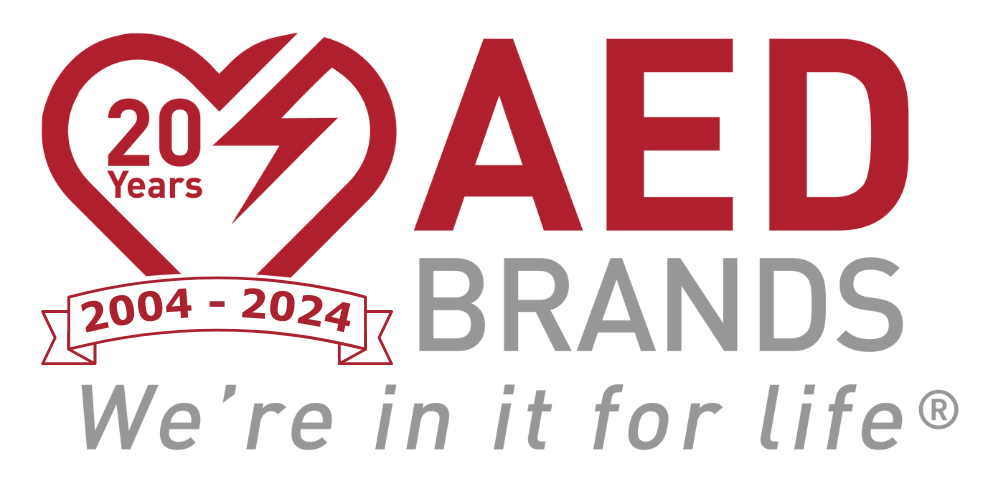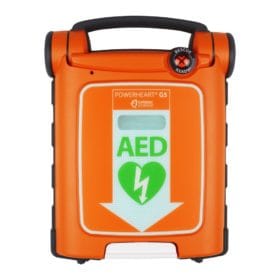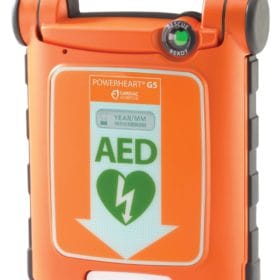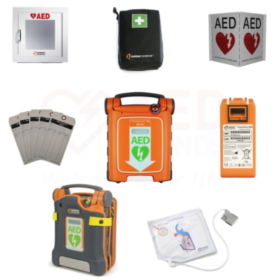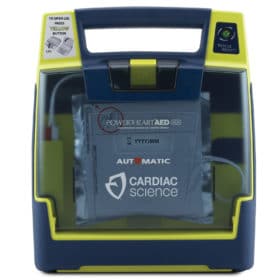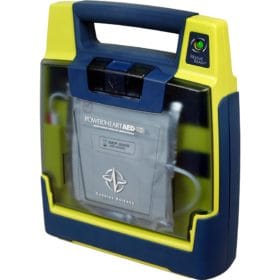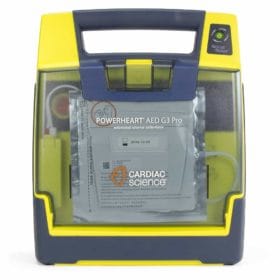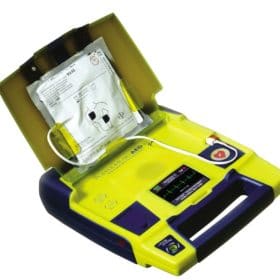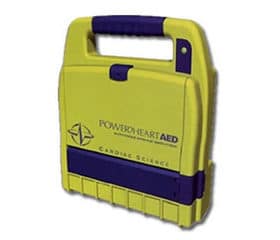Defibrillator Reviews: How to Choose the Best AED or Defibrillator for You
There are a bunch of automatic defibrillators on the market, and it can be a difficult decision to choose which defibrillator is best for your home or facility. A defibrillator helps control fast heartbeats and regulate the rhythm of a heart by delivering electric shocks to the heart. For a cardiac arrest patient, the difference between life and death could be the proper use of a defibrillator to give their heart a "jump start' before medical attention can be given. Oftentimes, if a defibrillator isn't used before an ambulance arrives, the patient's likelihood of surviving is much less than if one is used. Most states have local laws that require some public facilities to have an AED station on site.
There are six large defibrillator manufacturers:
- Cardiac Science
- Defibtech
- Heartsine
- Philips
- Physio-Control (previously Medtronic)
- Zoll
These companies have done a lot of research over the years and have developed even safer AEDs and defibrillators. Compared with the first devices introduced to the market, they are easier for the public to use before medical personnel can arrive at the scene.
One of the most popular portable models of Automated External Defibrillators is the Philips HeartStart OnSite AED. It gets fantastic reviews, and someone with little or no training can use this defibrillator to attempt to save someone's life.
The Philips HeartStart AED usually is located hanging on a wall in an airport, school or in the lobby area of a big building and should be easily accessible. The HeartStart is easy to maintain and set up and provides clear audio instructions while using the device. Another popular option is the Zoll AED Plus defibrillator because it gives real-time and visual feedback to help someone throughout a rescue attempt.
If someone has survived cardiac arrest or if they have heart conditions that put them at high risk, they may need to have a different type of defibrillator in their home. One is called a Protecta Implantable Cardioverter Defibrillator (ICD), featuring pacemaker-like capabilities. Sometimes they are also called biventricular defibrillators. Another type of defibrillator that someone surviving a heart attack might need is a Life Vest wearable cardioverter defibrillator, or WCD. This is a personal device that monitors someone's heart continuously to make sure shock treatment is delivered in a life-threatening situation.
Ultimately, to choose the right defibrillator for your home, you need to talk to your doctor to make sure that the device has all the features you need to cover your risks. Or, if you are choosing a defibrillator for your facility or office, be sure to read defibrillator reviews online and make sure your device and CPR equipment align with your state and local laws.
As an authorized distributor for all manufacturers, AED Brands carries a complete line of products. Choose your model below or
click here for a product comparison.

